‘He was in a constant state of suffering and anguish’: Dad emotional at royal commission discussing death of son
An emotional father has described the tragic decline he witnessed in his son’s mental health after he was deployed to Afghanistan.
Shaun Jenkins was excited to join the military but during a stint serving in Afghanistan he witnessed the shocking death of a 16-year-old girl and was injured in an vehicle accident.
After those two traumatic incidents, Private Jenkins’ family noticed a change in his demeanour whenever they spoke on the phone and even more so when he came home for Christmas.
“He was very quiet, very different to what he been prior to deploying,” Peter Jenkins told the Royal Commission into Defence and Veteran Suicide on Thursday.
Private Jenkins, 24, eventually revealed to his family at Christmas in 2015 that he had been diagnosed with PTSD.
He then took his own life in January 2016.
Mr Jenkins, who is a former army reserves member and was a police officer for 38 years, became emotional several times while talking about his son.
“Shaun was a very loving and caring young man,” he said, with his voice cracking.
“He was very close to his older brother.
“He was very patriotic ... I think he saw the army as a way of fulfilling his desires to serve the country.”

After some months in Kabul, Mr Jenkins said he noticed his son was “little bit more withdrawn and quieter” when they spoke on the phone.
“Even when he was home, which was really only at Christmas time, he would isolate himself for fairly significant periods of time in his bedroom.”
Mr Jenkins said his son was “not his normal, cheeky, jovial self.”
The soldier never went into very much detail about his PTSD, but Mr Jenkins said he was aware his son was getting less than four hours of sleep per night and would lay awake in bed thinking of what had happened in Afghanistan.
“I believe that his PTSD got to a stage where he didn’t believe he had an option,” Mr Jenkins said.
“He was in a constant state of suffering and anguish.
“Eventually, it gets to a stage where you think there’s no other option. You don’t see any other option.
“I think they actually believe that their loved ones and family members will be better off as well.”
Mr Jenkins suggested several areas where the army could improve its support systems.
“Simply asking the question if you’re okay, is never going to be sufficient for people that have been in those types of situations,” he said.
“They can still have or develop PTSD as a result of their service and what they saw and did a couple of years down the track.
“They need to have psychologists or counsellors speaking to our veterans ... whilst they’re deployed, prior to them returning, and then at regular intervals after returning from deployment.
“Even if they have made the decision to transition out of the military, there still needs to be follow-up down the track.”
Mr Jenkins also said he believed every promotion course within the military should include some degree of mental health first aid training.
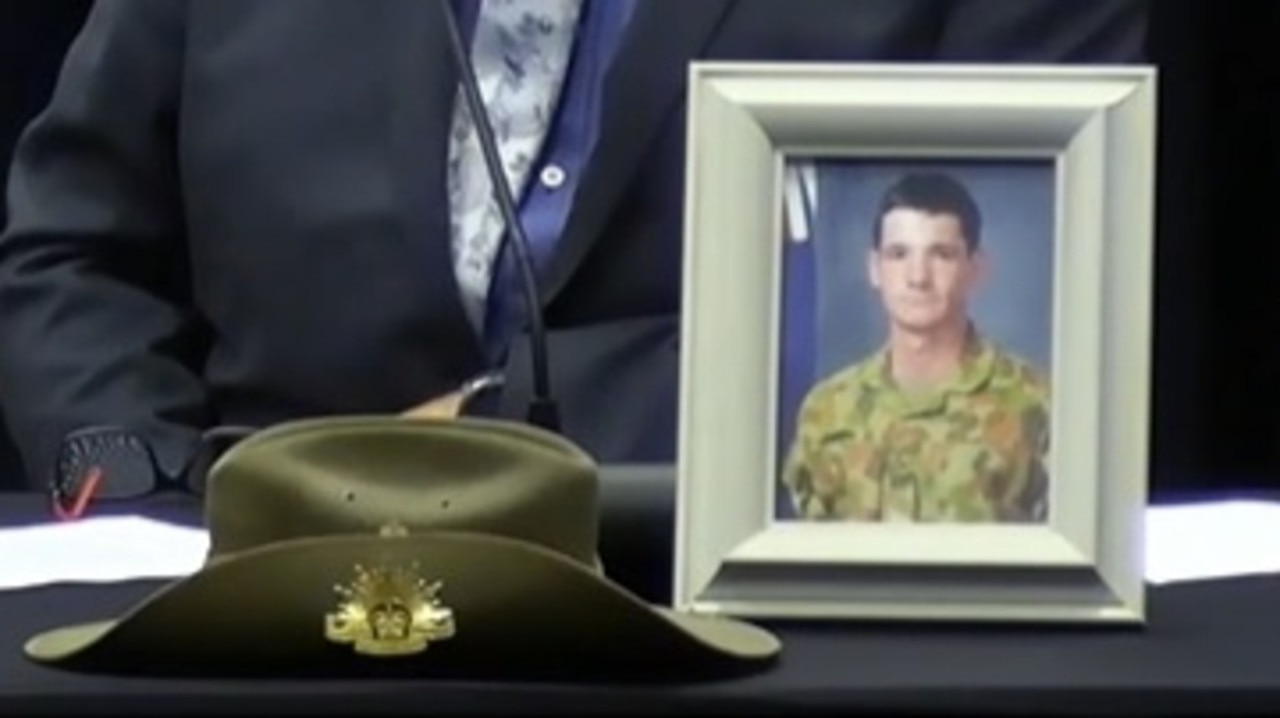
The family never received a copy of Private Jenkins’ medical records, with Mr Jenkins describing the family’s experience with the Department of Veterans’ Affairs as “horrendous”.
Mr Jenkins said the department told them they were not entitled to any money — but that was not what they wanted.
“(Shaun) had identified that he was suicidal but I don’t believe that anything happened as a result ... he just was sent back to work,” Mr Jenkins said.
There was no inquest into Private Jenkins’ death and the family was not consulted for the coroner’s report that was provided in 2019.
Mr Jenkins said the family had had limited contact with Defence since his son’s death.
“We need better record keeping of, from a suicide perspective, who has taken their life,” he said.
“As far as I’m aware, the only records that Defence keep are for serving members who have suicided.
“Once you transition out and you’re no longer part of Defence, those records aren’t necessarily kept or accurate.
“Without knowledge of how big the problem is, you’re never going to be able to address it.”
Mr Jenkins said all the family wanted was “answers as to why we lost our son”.
“We need to build a system that supports everyone that signs up,” he said.
“Shaun was a very emotional and loving and caring young man.
“He was certainly more introverted than his older brother
“Everyone’s different and we need to build into the system a way of approaching that.
“I’m more than confident that there are people within Australia ... that can help put those things in practice.”
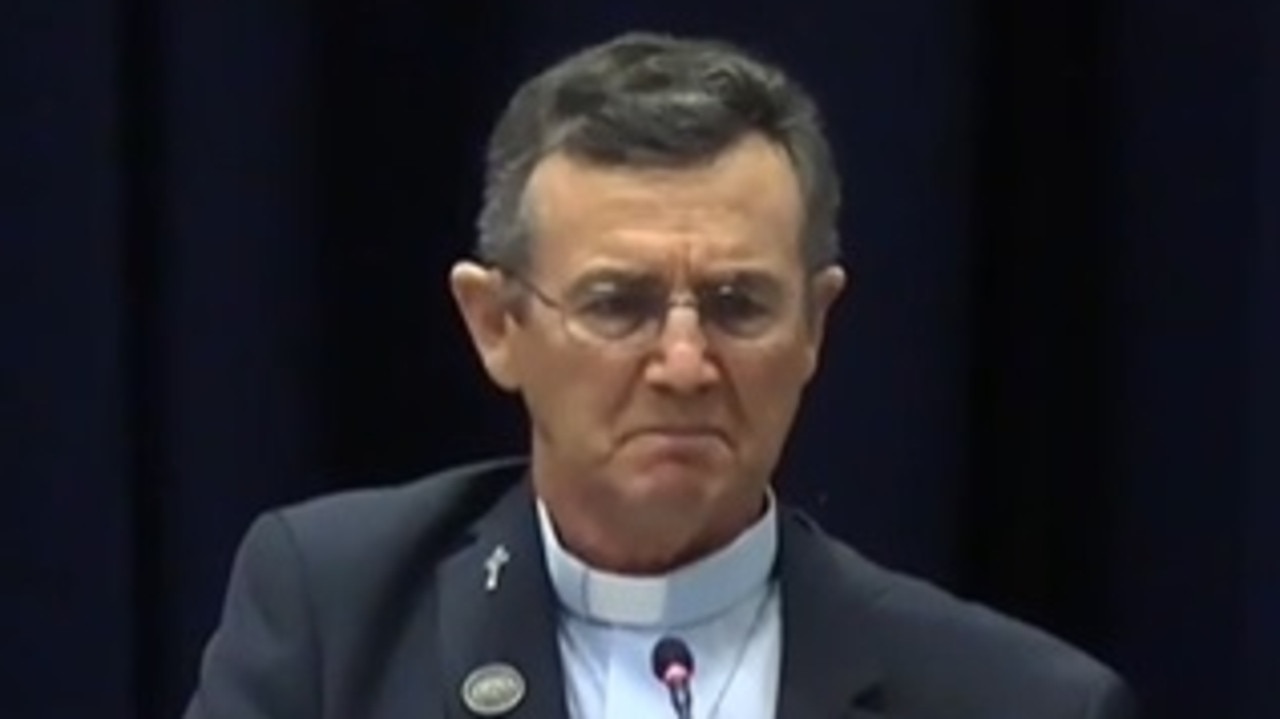
Padre Gary Stone, who founded the Veterans Care Association, said he hoped the royal commission would be an “awakening” but warned action must be taken as soon as possible.
“Veterans will die this week if we don’t act,” he said on Thursday.
“I’m not being melodramatic here. We’ve got to deal with it.”
In 1989, Padre Stone led an Australian contingent of peacekeeping forces deployed to the Iran-Iraq war, which he described as a “watershed” moment in his life.
Padre Stone said he and others over the years had felt like they had to deal with their trauma alone, which was not the case.
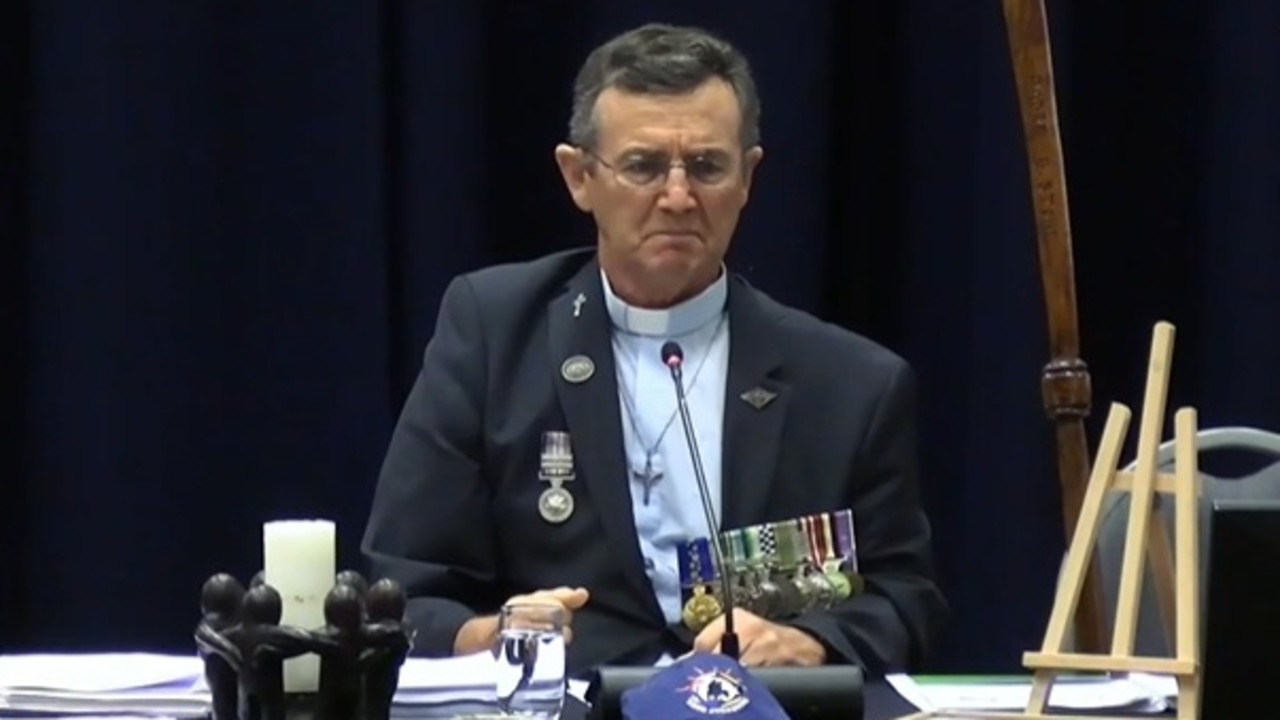
He insisted the majority of military people were “really good” and bullying was “abhorrent” to them.
“There’s no training pamphlet that says you need to bash people up, or yell at them, or scream at them, or anything like that,” he said.
“Stories that you hear, they are not part of our culture. They’re aberrations and only as a chaplain did I realise why we have those problems.
“Because many people who join our defence force have been abused before they come into the defence force.
“They join the military to get away from a dysfunctional situation, and some of them turn out to be good soldiers or airmen or seamen.
“Some of them continue to be a victim, some of them become perpetrators — and that’s the tragedy of it.
“It’s a social cancer that we just have to keep cutting out.
“But believe me, we can overcome evil with good.”
Padre Stone said the most basic human desire of any veteran was the “need to belong, and have a sound identity and purpose”.
He suggested every veteran should get a peer mentor.
“People are dying under the current arrangements,” he said.
“(It’s) an industry (that) has (been) built up around treating sick veterans after they’ve crashed, rather than getting them healthier and self-managing.
“Many suicidal veterans are of the mindset they are totally and permanently incapacitated.”
Padre Stone said early intervention was the key.
“Medicating, compensating and isolating hasn’t worked — prevention and early intervention will,” he said.
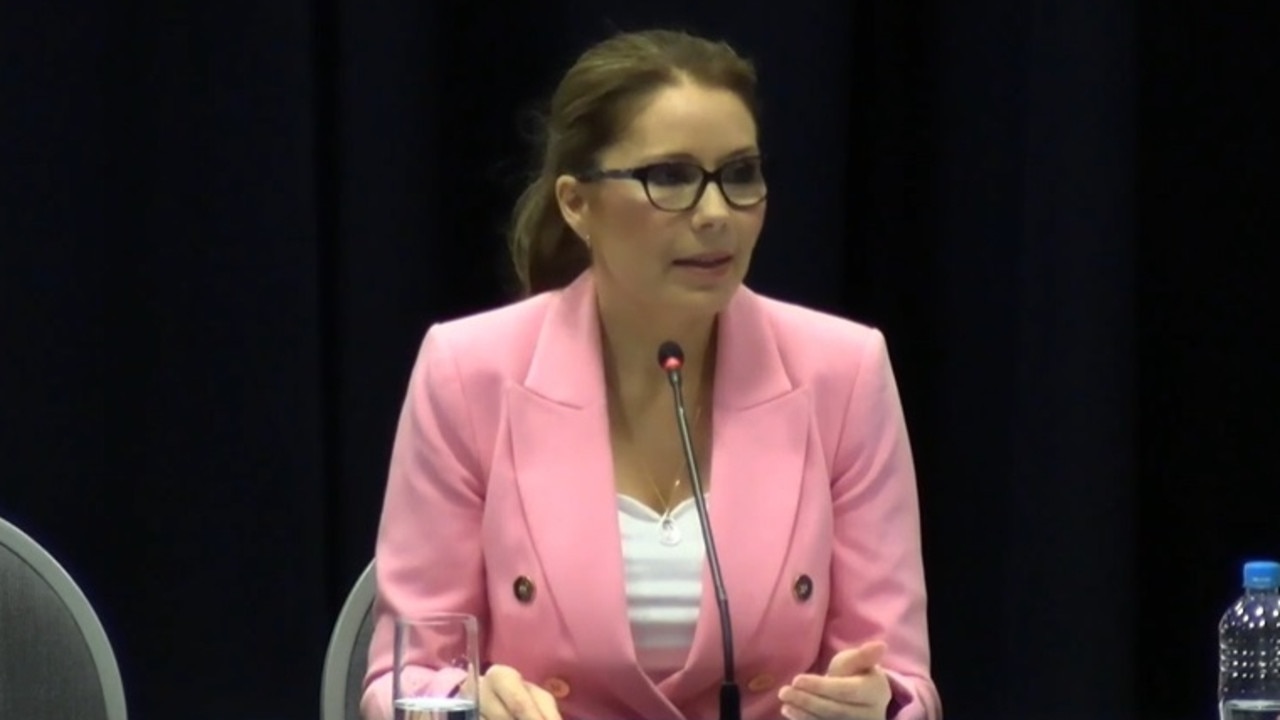
PhD candidate Nikki Jamieson, who spoke previously to the royal commission about the loss of her son, said there were four core constructs of moral injury — guilt, shame, self-condemning behaviours and betrayal.
“Betrayal is often seen as just a symptom of, but now it’s considered a key construct and key contributing factor to moral injury,” she said on Thursday.
Ms Jamieson said she had seen some “brilliant” leaders in the ADF but there were a few “causing significant damage”.
She said education, training, assessment and recruitment processes were central to improving the system.
“We really need to understand who we are bringing in ... what their value framework looks like, what their attachment framework looks like,” she said.
“We also need to really focus on building the emotional intelligence, particularly of those leaders.
“At the moment ... there seems to be a lot of similar issues where leaders will act and behave a certain way that is creating moral problems for people and that’s manifesting as all sorts of symptoms — guilt, shame, numbing suicide behaviours, etc.
“I also think that before people should be promoted, there should be much more extensive and intensive processes, assessment processes, to see how they manage people.
“At the moment, as we’ve heard time and time again, people do bad things and get promoted — that needs to change.”
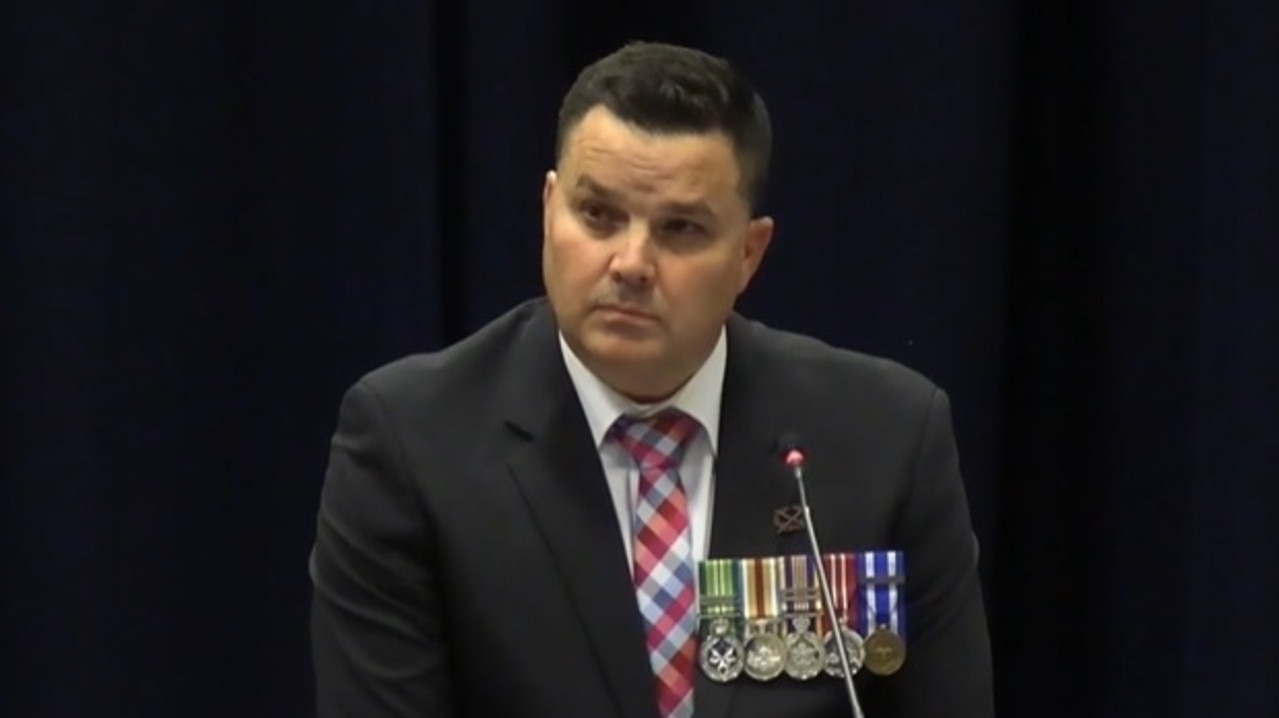
General practitioner Phil Parker, who was also a senior medical officer in Afghanistan, told the royal commission he cared for “a lot of complex veterans” with multiple mental and physical conditions, but wished he could help more.
Dr Parker said there was a two-month wait to see him because he was so overloaded but he told his patients to make fortnightly consultations for about four months.
“There is that much work that must be undertaken,” he said.
“Especially with physical and mental health, I can’t delay progress with that, I need to get that up and running.”
Dr Parker said he and other GPs were able to diagnose people with PTSD and other mental health issues, but the Department of Veteran Affairs did not accept their diagnosis.
Instead, they would have to refer a veteran to a psychiatrist.
Public hearings will continue in Brisbane until December 10.
More sessions will be held in Sydney, Wagga Wagga, Townsville and Canberra.
An interim report is due in August, with a final report in June 2023.




